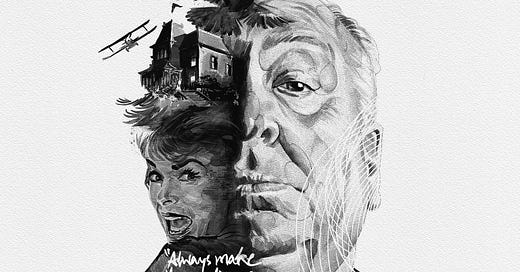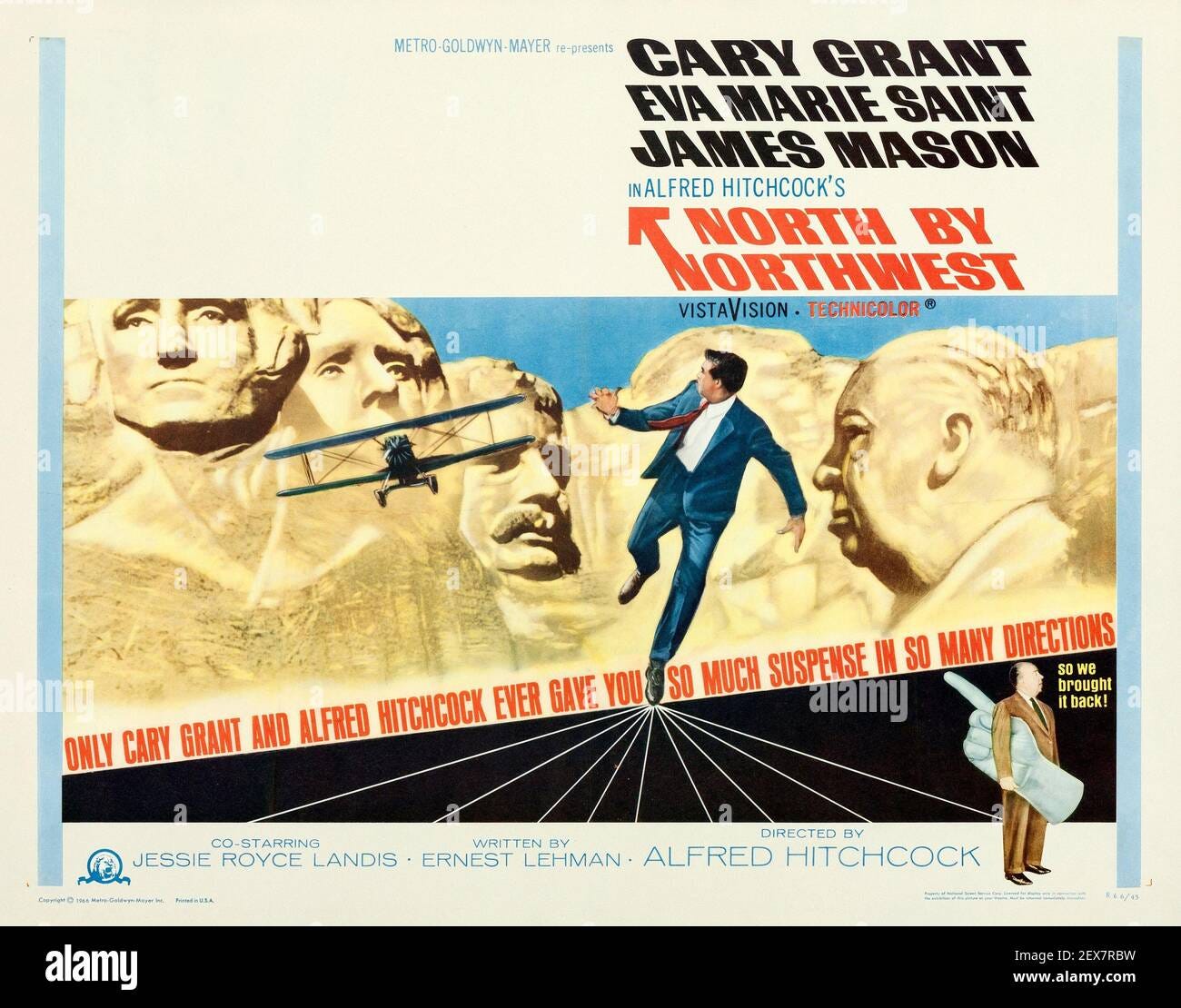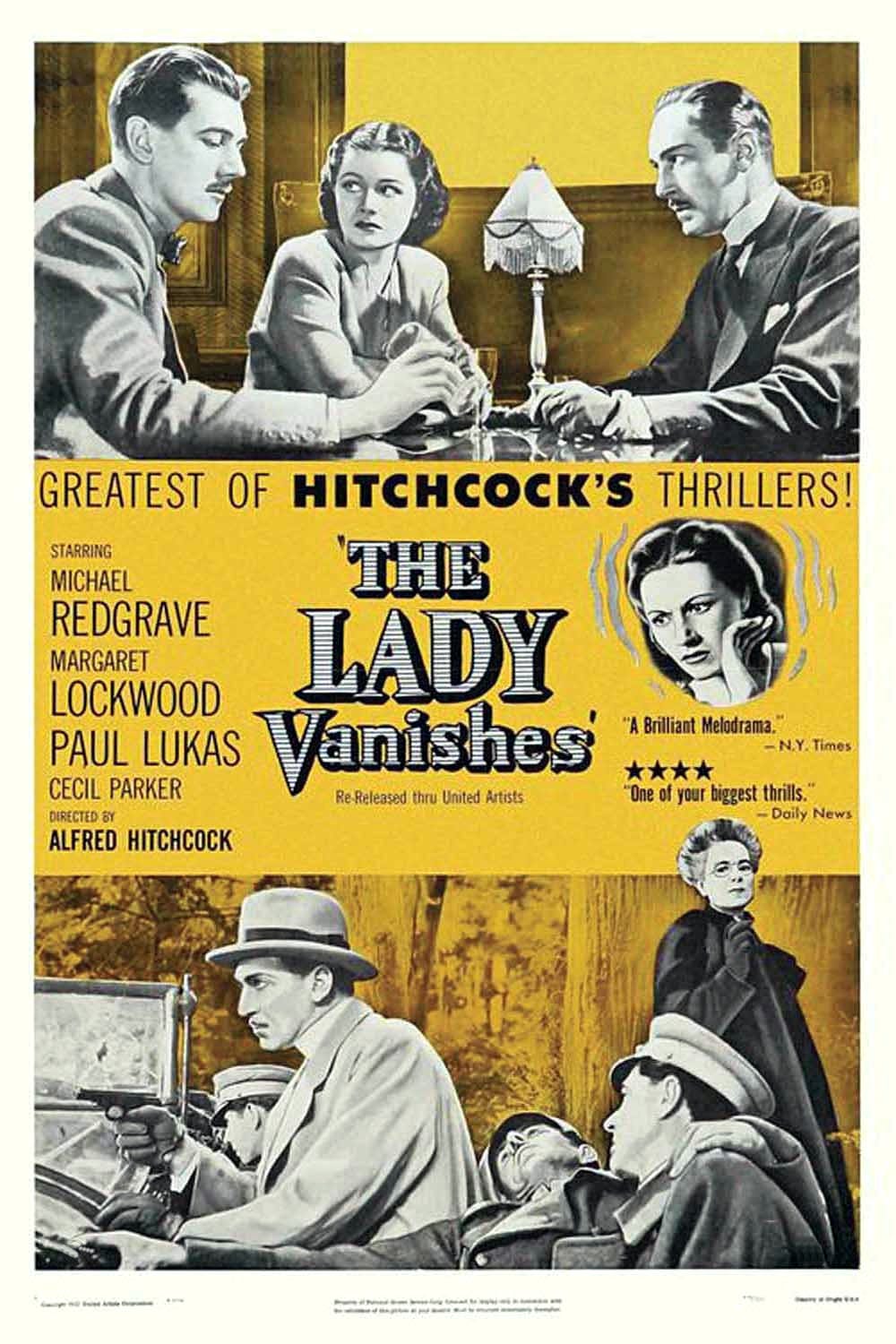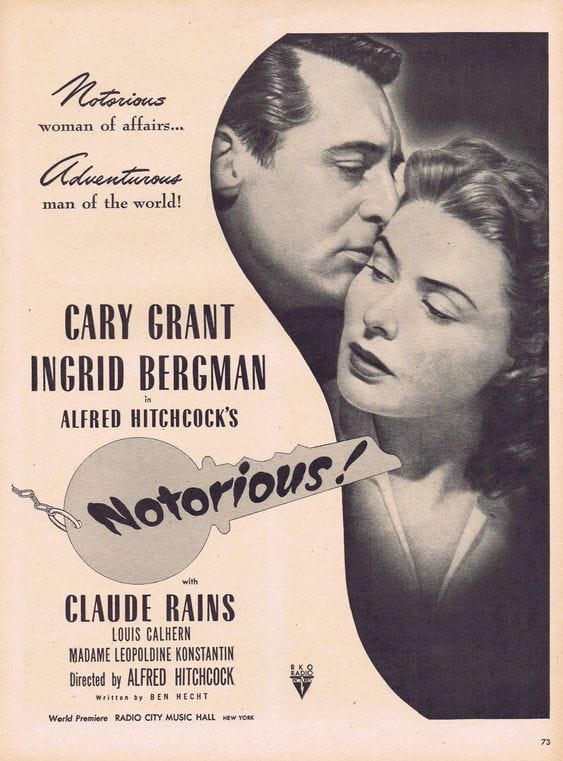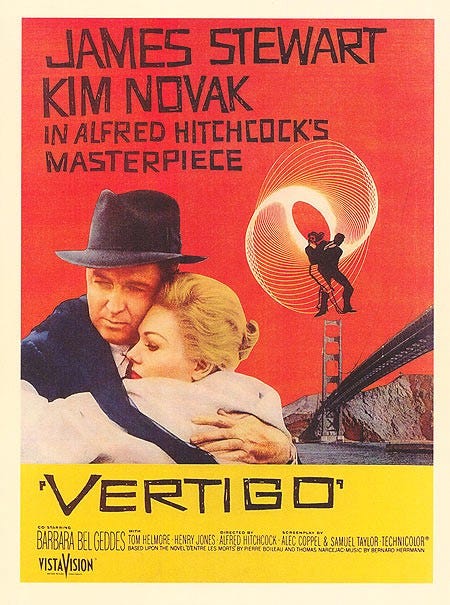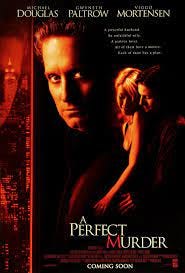Alfred Hitchcock, the brilliant rotund triple-chinned film director once famously said “Film your murders like love scenes, and film your love scenes like murder.” And I have found this to be so true of his entire oeuvre of work.
Whilst critics and film lovers have always talked about the famous shower scene of Psycho as one of the most memorable in film history, there is a different scene which I remember with a shudder every time I think about it. It was a scene from his penultimate film Frenzy, where a serial killer has to retrieve a telltale clue from the hands of a woman he had just killed. Rigor mortis has set in, and the murderer has to break the fingers. The snap of the fingers being broken was edited with the breaking of bread sticks by a patron in a nearby restaurant -and it was macabre and funny, and made me cringe and laugh at the same time. Black humour at its best! And that’s how I remember Hitchcock. But, of course, he was much more than that.
He once rued “I am a typed director. If I made Cinderella, the audience would immediately be looking for a body in the coach.” So he was sly, and filmed romance in his own unique way, directing some of the most famous kisses ever filmed, and evoking some sensitively-etched performances from his actors, irrespective of the fact that they got murdered or not!
For the man who was voted the Greatest Director of All Time by Entertainment Weekly, there is a story which is an insight into the mechanics of his fertile brain. As a child, Hitchcock was sent to the local police station with a letter from his father. The police sergeant read the letter and immediately locked the boy up for ten minutes. After that, the sergeant let young Alfred go, explaining, "This is what happens to people who do bad things." From that day on, Hitchcock had a morbid fear of police. He also cited this phobia as the reason he never learned to drive (because a person who doesn't drive can never be pulled over and given a ticket). It was also cited as the reason for the recurring "wrong man" themes in his films.
Hitchcock never won an Oscar. So when he won his Lifetime Achievement award in 1979, he joked with his friends that he must be about to die soon. Indeed, he died a year later.
I give below excerpts of reviews I’ve written of some of his films - some known, some unknown. The full reviews can be read at the links provided in the HT Media-run digital platform OTTPlay.
Have a murderously good time!
North by Northwest
“I guess there would be several films in the rich oeuvre of Alfred Hitchcock which would qualify as his ‘best’ - Psycho, Rear Window and Vertigo immediately come to mind - but there would be very few (maybe To Catch a Thief) which could match the sheer fashionable charm of North by Northwest!
“The film has an irresistible charisma and an infinitesimal quality which pulls the viewer in for repeat viewings. It has to do as much with its breakneck pace as it has to do with its smart writing and it’s now-famed set pieces.
“The film revels in the Hitchcockian vein of acerbic humour from the first scenes of a busy New York street. Cary Grant is running late for an appointment - looking frightfully debonair - even as he dictates to his secretary in the middle of the thronging crowds! At a remark from her, he says “In the world of advertising there’s no such thing as a lie. There’s only the expedient exaggeration.” Hitchcock obviously takes this advice to heart for his world of filmmaking too!”
Read the full review here!
See it on hungama.com or YouTube Movies.
The Lady Vanishes
“The film is an easy-going and smooth ride. The twists are easy to spot and the high voltage denouement - full of bullets, sound and fury - is entertaining in its continuing delineation of personalities who come with their own agendas, but doesn’t have the high jinks one is in the habit of expecting in the thrillers of today.
“Margaret Lockwood is easy on the eyes, and swoons beautifully, whilst Michael Redgrave transits seamlessly from being an irritating rogue to roguishly charming. Dame May Witty is cute and loveable, and the other actors are perfect with their roles, though often slightly obvious.
““Orson Welles allegedly saw this movie 11 times and Francois Truffaut said this was his favourite Hitchcock. And why not? There’s a love story which finds its acme, a mystery which finds its resolution, a lawyer who gets a karmic lesson, and a couple of cricket-obsessed Englishmen who get their just desserts. I doubt if the most fastidious moviegoer could ask for more.”
Read the full review here.
See it here.
Notorious
“Notorious was the second film Hitchcock made with Ingrid Bergman, right after the stupendously successful collaboration on the 1945 Spellbound, where Ingrid was paired with Gregory Peck. And Notorious captures Ingrid's irresistible glow and charisma, with impeccable acuity. Cary Grant and Ingrid were a pair made in heaven, with a chemistry which burnt the screen.
“Their legendary kissing scene in the film is a masterclass of performance, shooting and direction. It starts at 23.25 minutes into the film and ends at 26.00 minutes and includes the gorgeous Brazilian coastline, a discussion on staying in for dinner instead of going out, a dinner menu consisting of chicken, of an arrangement of dinner plates, of phoning a hotel for messages, a decision on bringing a wine bottle, and a comment on it being a very strange love affair. It's shot with both the faces in intense close-up, as the pair talk, kiss and move around the flat, with Ingrid's face suffused with love, almost glowing from inside, and the guarded, careful, letting-go-but-keeping-in behavior of Cary Grant. There is a sensuality in the kissing, the way it is shot, the way Ingrid plays it with a warmth and coziness and a closeness, where even the banal things she says take on meaning. It's interesting how Hitchcock got the inspiration for the scene. He said he was inspired by the memory of a young couple he had spotted from a train whilst travelling in France. He’d seen a boy urinating as his girl friend was holding onto his arm, not letting go. Hitchcock said that the girl would continuously look down as he went about his business, and then look up at the landscape, the scenery, and then down again to see how far he’d gotten, but she just wouldn't let go of his arm! Hitchcock explained that that’s where he’d got the idea that romance must never be interrupted, even by urinating.”
Read the full review here.
See it here.
Vertigo
“Hitchcock’s stories defy life’s karmic twists. They are a rule onto themselves, follow their own obsessions, find their own retributions. The suspense has heartbreak inherent in it, the evil it’s gleeful consummations, and good can only hope for its one good day in office. If there is innocence, there is danger lurking in the shadows, if there is joy there is something to be suspicious about.
“There’s not a Hitchcock movie I’ve come out where I’ve not been rendered cynical, felt endlessly hopeless or - bitten my nails off. Vertigo is no different.”
…..
“More than any other film, Hitchcock explores the contours of a city and its landscapes - San Francisco here - with great delicacy and beauty in Vertigo. As Scottie follows Madeleine and then they explore the inner workings of their affection and relationship, the city becomes a map charting their relationship. The shocking denouement, as it were, is then both heart-rending and apposite.
“Cary Grant is both the progenitor and the victim, as his duty spins into a mission and then into desperation. At one point, he tells Madeleine that since both of them are wandering randomly, they might as well wander together. And Madeleine replies - “Only one is a wanderer. Two together are always going somewhere.” Is that ‘somewhere’ a spiral upwards or one downwards is the film’s subliminal message which Hitchcock leaves the viewer with.”
Read the full review here.
Watch it on YouTube Movies or Google Play Movies & TV
A Perfect Murder
(This is not Hitchcock, but is based on his peerless Dial M for Murder - hence the inclusion!)
“Paltrow has a soft vulnerability which makes her situation pitiable. She is a natural prey, with a poor judgement in men. But she also has feral instincts, symptomatic of what villains along the years have discovered of seemingly innocent women - largely to their fatal detriment. Paltrow leans into her role with languorous desperation, like a zen master in love.
“Viggo is handsome and guileful and in love, and hence immediately a target - for ill-begotten plans or simply a lover’s desperate rendezvous. Inherent in Viggo's personality are the layers he hides within himself. When Michael sees his art for the first time, he sizes him up immediately - “Your work is trashy but potent. Your anger is very controlled. There’s a colour of despair. “
“But the film moves on the malevolent axis of Michael Douglas. There is something about Michael which is toxic and snaky, with his hair and his cold eyes, his cigars and his galaxy of insistences. And the way his eyes roll as he watches a person move from one side to another. A creepiness. Like a cat. Nothing misses his gaze. Not a blinking phone light, not the turn of an expression, not the significance of a pause. With his hair slicked back and his demeanour casual in his well-cut suits, he is home in both his gorgeous art-filled home as he is while navigating the shark-ridden waters of bonds and yields.
Read the full review here.
Watch it on Netflix or YouTube Movies

